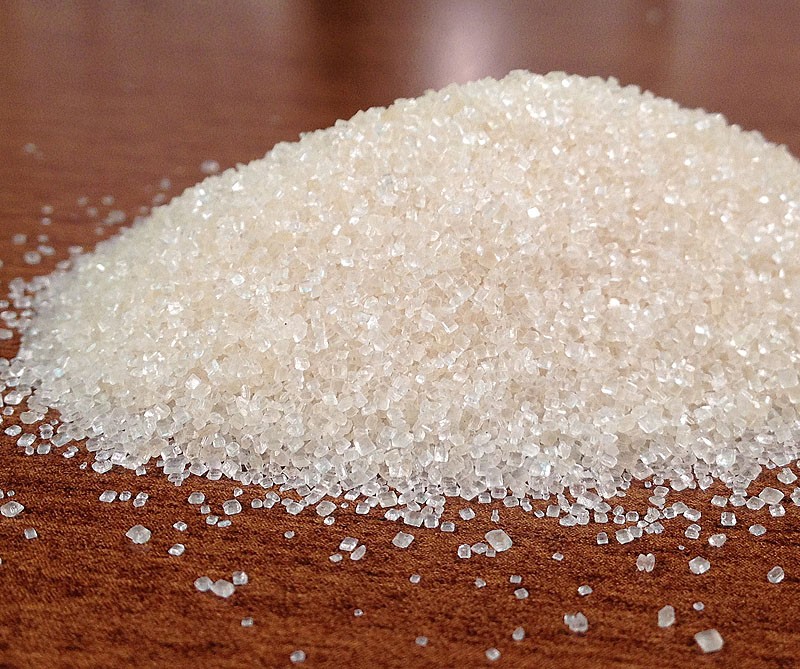Comprehending Cane Sugar Processing: A Comprehensive Introduction of the Stages
Comprehending Cane Sugar Processing: A Comprehensive Introduction of the Stages
Blog Article
A Thorough Introduction of the Health and Economic Effects of Walking Stick Sugar Processing on Neighborhood Neighborhoods
Walking stick sugar handling plays an essential function in shaping the financial landscape of local neighborhoods, using employment chances and promoting secondary sectors. The health and wellness ramifications linked with high sugar usage can not be neglected, as they contribute to increasing rates of weight problems and diabetes.
Economic Benefits of Walking Cane Sugar Processing
Walking stick sugar processing supplies substantial economic benefits that prolong past the instant farming field. The farming and handling of sugarcane develop many work opportunities, from farming to production and circulation. This employment generation not only supports local economic situations yet likewise fosters area development by providing stable earnings resources for families.
Moreover, the sugar industry promotes secondary companies, including transportation, equipment supply, and product packaging solutions (Cane Sugar Processing). As these markets grow, they add to a more durable economic framework, improving total area strength. The export potential of processed walking stick sugar even more amplifies economic advantages, placing regions as affordable players in worldwide markets
Financial investment in modern-day processing centers can lead to increased efficiency and efficiency, therefore minimizing waste and enhancing resource use. This change not just benefits the neighborhood economy yet also sustains sustainability efforts by lessening ecological impacts.
In addition, the earnings created from walking cane sugar processing can be reinvested in neighborhood framework, education, and healthcare, advertising alternative community growth. Overall, the financial benefits of walking cane sugar processing are complex, offering a structure for enduring success in farming areas.
Health And Wellness Risks Connected With Sugar Intake
Excessive sugar usage poses significant health and wellness threats that require severe focus. High intake of added sugars, especially from refined drinks and foods, has been connected to countless health problems.
In addition, high sugar intake is related to heart disease. Elevated blood glucose degrees can bring about insulin resistance, a precursor to various heart-related issues. Furthermore, sugar can have destructive effects on dental wellness, leading to dental caries and gum tissue illness, as bacteria in the mouth grow on sugar, producing acids that erode tooth enamel.
Furthermore, emerging study recommends a potential link in between high sugar consumption and mental health problems, such as depression and stress and anxiety. As areas come to grips with these wellness dangers, it becomes vital to advertise recognition and motivate healthier nutritional choices. Resolving sugar consumption is vital not only for private wellness but also for the total wellness of local areas, stressing the requirement for detailed public wellness strategies.
Environmental Influences of Sugar Manufacturing
Frequently overlooked in discussions about sugar's effects is the considerable ecological impact of sugar production. The growing of sugarcane frequently necessitates comprehensive land usage, leading to deforestation, loss of biodiversity, and disturbance of neighborhood communities. The conversion of woodlands and wetlands into sugar vineyards can lead to environment damage, threatening various types and altering ecological balance.
Additionally, sugar manufacturing is resource-intensive, consuming substantial quantities of water for watering. This can result in depletion of regional water resources, adversely impacting both farming methods and community access to tidy water. Additionally, making use of chemical fertilizers and pesticides in sugarcane farming can add to dirt destruction and water contamination, as drainage from these chemicals goes into nearby rivers and lakes, impacting marine life and human health.
The environmental footprint extends to the handling stage, where power consumption and waste generation further aggravate environmental concerns. Air contamination from melting sugarcane areas, in addition to greenhouse gas emissions, contribute to climate adjustment. As such, the environmental ramifications of sugar production warrant major factor to consider, urging stakeholders to take on even more lasting methods to minimize these damaging results on neighborhood ecological communities and communities.
Job Creation and Neighborhood Development
The environmental obstacles postured by sugar manufacturing are often counteracted by its possibility for financial benefits, especially in task development and community growth. The cane sugar industry functions as a substantial source of employment in lots of country areas, providing work across different ability levels, from agricultural labor to processing and circulation functions. This employment not just sustains specific families but also adds to the general economic vitality of neighborhood areas.
Furthermore, the establishment of sugar handling centers boosts ancillary businesses, such as transportation solutions, tools supply, read more and upkeep suppliers. As these organizations thrive, they create additional work and strengthen neighborhood economic climates. The earnings created from the sugar industry likewise causes raised tax obligation incomes, which can be reinvested into social work such as education and learning, facilities, and medical care advancement.
Additionally, the sugar sector usually takes part in area growth initiatives, such as supporting local colleges and wellness programs, therefore enhancing the high quality of life for locals. By promoting strong community ties and advertising economic growth, the walking stick sugar processing market plays a vital role in uplifting regional populations, making it an essential element of sustainable advancement approaches in sugar-producing areas.
Harmonizing Wellness and Economic Growth
In navigating the intricacies of walking stick sugar processing, a vital challenge hinges on stabilizing wellness considerations with financial growth. The sugar sector substantially adds to regional economies by producing jobs, stimulating related markets, and enhancing tax obligation incomes. Nonetheless, the wellness effects connected with excessive sugar consumption can result in chronic illness such as excessive weight, diabetes mellitus, and cardiovascular issues, which can problem public wellness systems and lessen workforce performance.

Additionally, regulative frameworks can play a pivotal role in guiding sector techniques towards even more health-conscious and lasting methods. By cultivating collaboration in between federal government bodies, health organizations, and the sugar industry, neighborhoods can navigate the dichotomy of wellness and financial growth, making sure that the advantages of cane sugar processing are equitably shared while focusing on public wellness.
Verdict
In verdict, the handling of walking stick sugar provides both substantial economic benefits and remarkable wellness risks for local neighborhoods. While it cultivates job production and stimulates local advancement, the affiliated health and wellness concerns, particularly pertaining to excessive weight and diabetic issues, necessitate a mindful harmonizing act. By promoting responsible consumption and investing in area education and learning and lasting practices, it is feasible to maximize financial benefits while reducing unfavorable health effects, therefore ensuring a check that much healthier future for local populations.
Furthermore, sugar can have harmful effects on oral health and wellness, resulting in dental caries and periodontal disease, as bacteria in the mouth grow on sugar, generating acids that wear down tooth enamel.
Resolving sugar usage is vital not just for private health and wellness yet additionally for the general well-being of neighborhood areas, highlighting the requirement for extensive public health approaches.
Often ignored in conversations concerning sugar's effects is the considerable ecological impact of sugar production. The health published here implications connected with too much sugar consumption can lead to chronic illness such as excessive weight, diabetes mellitus, and cardiovascular concerns, which can worry public wellness systems and diminish workforce efficiency.

Report this page